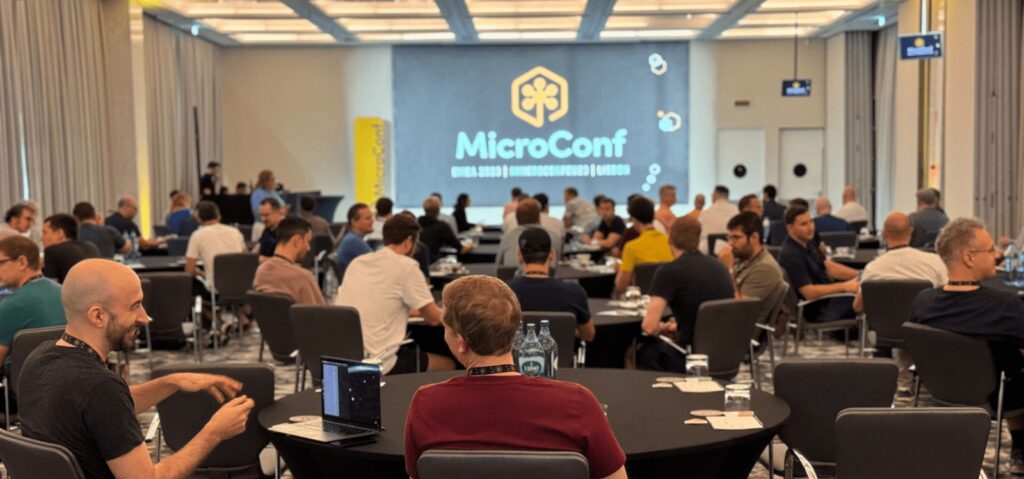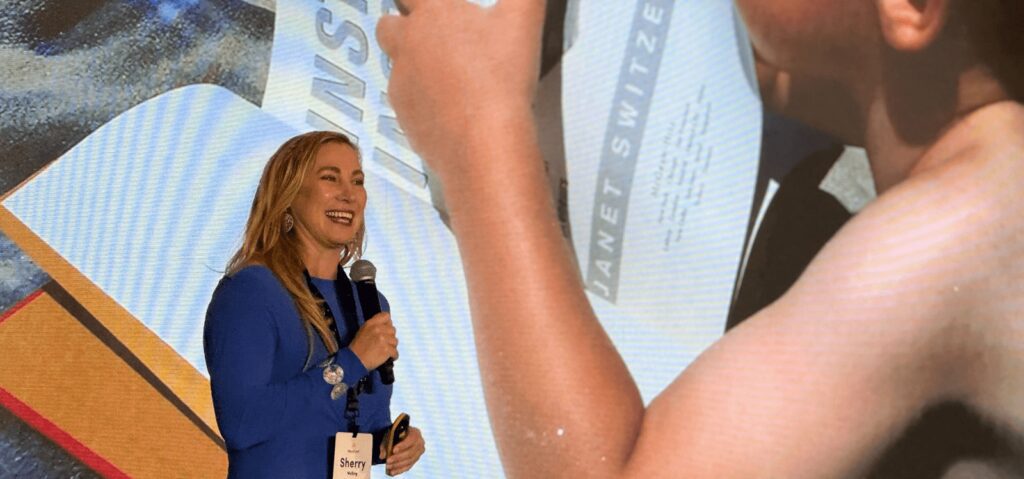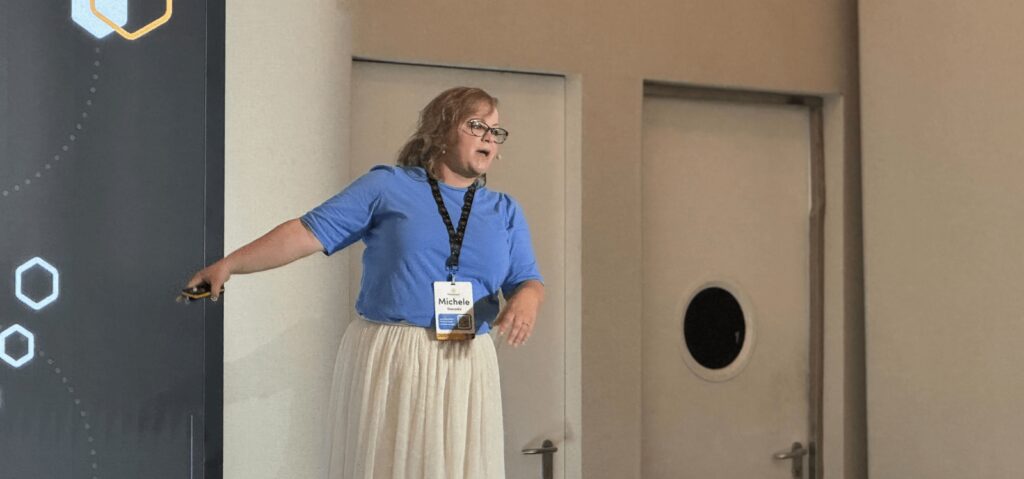
James Kennedy, the CEO of ProcurementExpress.com, shares a candid look into his annual tradition of attending Microconf, the unique challenges and rewards of bootstrapping, and the transformative insights he gained from this year’s event. Dive into James’s personal reflections below:
My co-founder, Rich and I have developed somewhat of a ritual attendance of Microconf. The self-effacingly named conference is aimed at so-called ‘bootstrapped’ founders of technology companies. Indeed, it was a conference I first attended back in 2013 that helped me decide to go in with Richard to create a purchase order system for our first customers, UNICEF and Clarin’s Cosmetics.
It differs from most other technology conferences because there isn’t any talk of ‘funding’. Funding is the term used to describe how most technology companies grow by raising money from investors and to accelerate growth, typically, ‘capturing’ market share before anybody else could. As it happens, about half of our competitors are funded in this way and it seems as though about half has ‘bootstrapped’.
I don’t have anything against raising money, in fact we did it with a few angel investors in 2016, but I do have a problem with the conferences they inspire. SaaStr, Web Summit and even Dublin Tech Summit are filled with marketing and sales execs pitching their wares.

Tech investing is a form of gambling really. The chances of success are low while the outside chance you back a winner can have a potentially outsized reward. It almost fits the very definition of making a bet. Low odds and uncertain rewards. It’s addictive. One big problem is that the tech conferences tend to feel more like casinos than places to learn about improving your business.
Not so at Microconf. Here the opposite problem is almost at play. Selling is a no-no and its filled with geeks and their solo or micro businesses. This year, around 15 attendees were ‘pre-launch’ while 50 were in the typical 300k – $1m revenue range. Those numbers wouldn’t excite your typical venture backer, which means they more or less leave us alone. The result is a conference where you can talk about the nuts and bolts of running a tech business without the hype. You meet plenty of inspiring people who are making great lives and doing fun things with their lives.

This year there were a couple of standouts for me. First was Sherry Walling’s talk on intrinsic vs extrinsic motivation. Said more plainly, typical psychology textbooks put people into one of two camps. Either those that are motivated by what others think of them or what they can motivate themselves to do. The former is fine but can lead you to running around setting your priorities to other people’s agendas. The latter helps you to put your own agenda first (health, relationships, business) and seems to be what most of us would rather be doing.
Sherry argues that we really don’t fit in such neat groups. Instead she offered an alternate model. The archetypes she proposed included, ‘Time Traveller’, ‘Power Broker’, ‘List Checker’, ‘Hard Driver’, ‘Money Maker’ and ‘Craftsperson’. What made it interesting, was her proposal that different types were more suited to different stages of a businesses development. At the start, a ‘List Checker’ is what you need to get things going. Towards the end, you might do better as a ‘Time Traveller’ as setting team goals into the future becomes more useful.
The next talk that rang a bell with me was from: This is Sophie, a SaaS marketing company. ThisIsSophie.com is worth checking out if only for its SaaS puns. Yes, you can hire ‘Sophie as a Service’ on a monthly plan. Sophie’s big idea was simple – you are really just known for one thing. Despite all our temptations to add more and more features, really, the customer doesn’t have time to hear it all. They know you for one thing and that thing is probably all you mean to them. There was a certain amount of bravery required to deliver that message to a room full of people who pride themselves on ‘building’ but it rang true. For the most part, we do a small thing for our customers in their daily lives, and that’s it. I’d like to think we send thousands of people home 10 minutes early every day because we make their company purchasing less hassle. I’m happy with that, but it was a good reminder. We constantly try to add new features to our product, but just doing that job well is really what we need to focus on.

The final insights I got from the conference were taken from the ‘hallway track’. That’s the conference lingo for the people you meet in between the talks. Microconf has adopted an audible groan-inducing ‘founder x founder’ speed networking sessions white are simultaneously the best and worst part of the conference. At these you pair up for a 7 minute conversation with someone you have not met. For a room full of introverts,this works much better than you might expect. I don’t want to share details here, but I met a mix of long-time success stories (like us) doing millions in revenue along with more recent startups who were already well on their way to their first million in revenue. There was something about seeing these folks in the flesh, most of them on their way to a healthy and wealthy future, which was heartwarming. When we all peel back to our local cities, we’ll be the odd ones out, making money online with software. In Portugal, it is good to feel like you fit in.
Overall, this was one of the best conferences Microconf have run. If you were considering bootstrapping a software business and funding isn’t your bag, I’d really recommend it.




